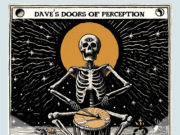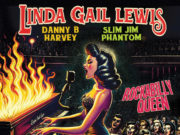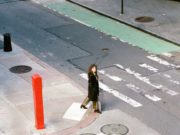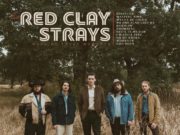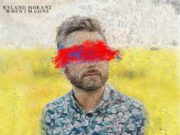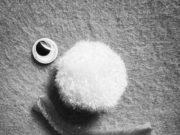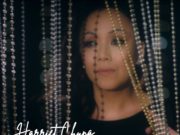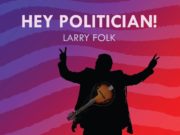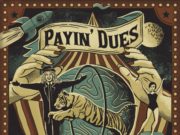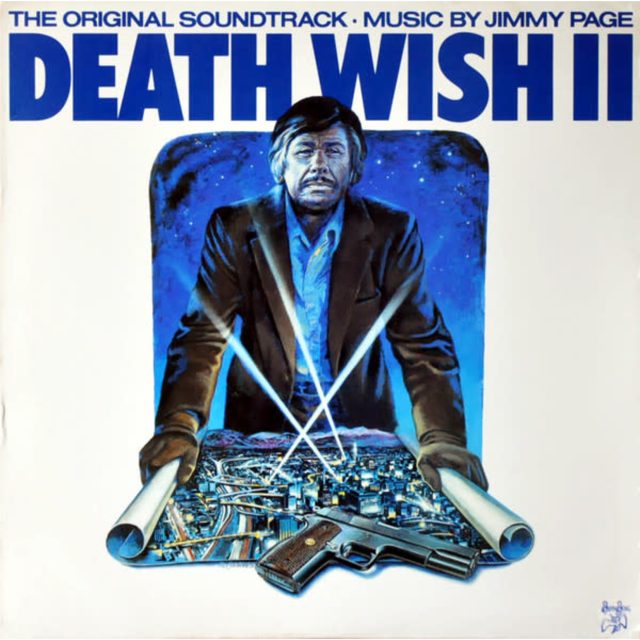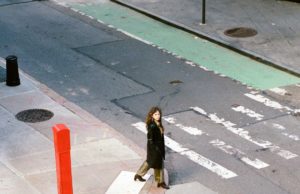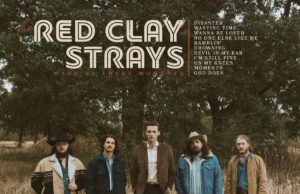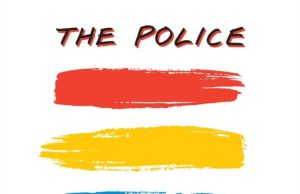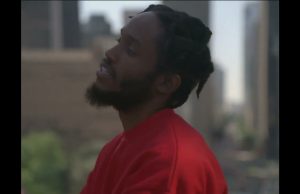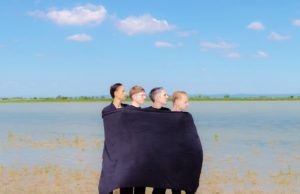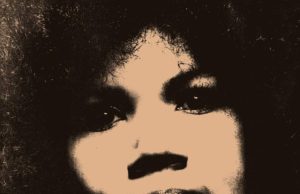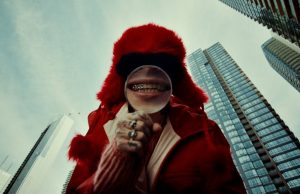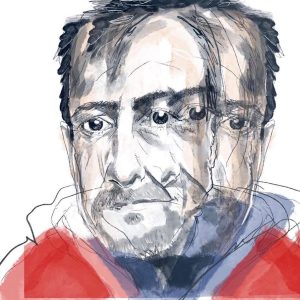 There aren’t many albums in my collection I’ve had as long as I’ve had the Death Wish II soundtrack and listened to less. A fervent Led Zeppelin fan then (and now), I bought my still-sealed copy of this 1982 release sometime around 1988. Bits of it wound up on mixtapes for a few weeks, but it probably hasn’t been on a turntable since 1989. I suppose this review is an excuse to spin it again.
There aren’t many albums in my collection I’ve had as long as I’ve had the Death Wish II soundtrack and listened to less. A fervent Led Zeppelin fan then (and now), I bought my still-sealed copy of this 1982 release sometime around 1988. Bits of it wound up on mixtapes for a few weeks, but it probably hasn’t been on a turntable since 1989. I suppose this review is an excuse to spin it again.
Back in the early ’80s, Jimmy Page was a stranger in a strange land. After years of frenzied tours and recording with Led Zeppelin, the band’s founder found himself slipping into obscurity since drummer John Bonham died in the fall of 1980 and the band dissolved. Page grieved heavily and had also been dealing with a heroin habit since 1975. He got off the drug by the early ’80s, around the time of Death Wish II, but also was busted for cocaine the year the soundtrack came out. And then again two years later.
He’d appeared on stage with Jeff Beck once since Bonham died — in 1981 — and he also had a musical project with former Yes members Chris Squier and Alan White called XYZ (ex-Yes & Zeppelin). XYZ ran its course — after failing to get Robert Plant interested in being involved — and it was at this point that Page was approached by his neighbour, director Michael Winner, about doing the score for his film. He watched the movie and agreed — provided he just be given the scenes and timings and be left to do it alone at Sol Studios — the studio he bought off Elton John producer Gus Dudgeon a year or so earlier. Page owned it until 1988 and did Death Wish II there, along with working on Zeppelin’s Coda, the two albums by The Firm and his solo album Outrider. Dudgeon had purchased the place with the intent of using it to mix Elton’s albums for quad. That didn’t happen. Bits of A Single Man were done there, as well as the worst Elton album, Leader Jackets, and the much-improved Ice On Fire.
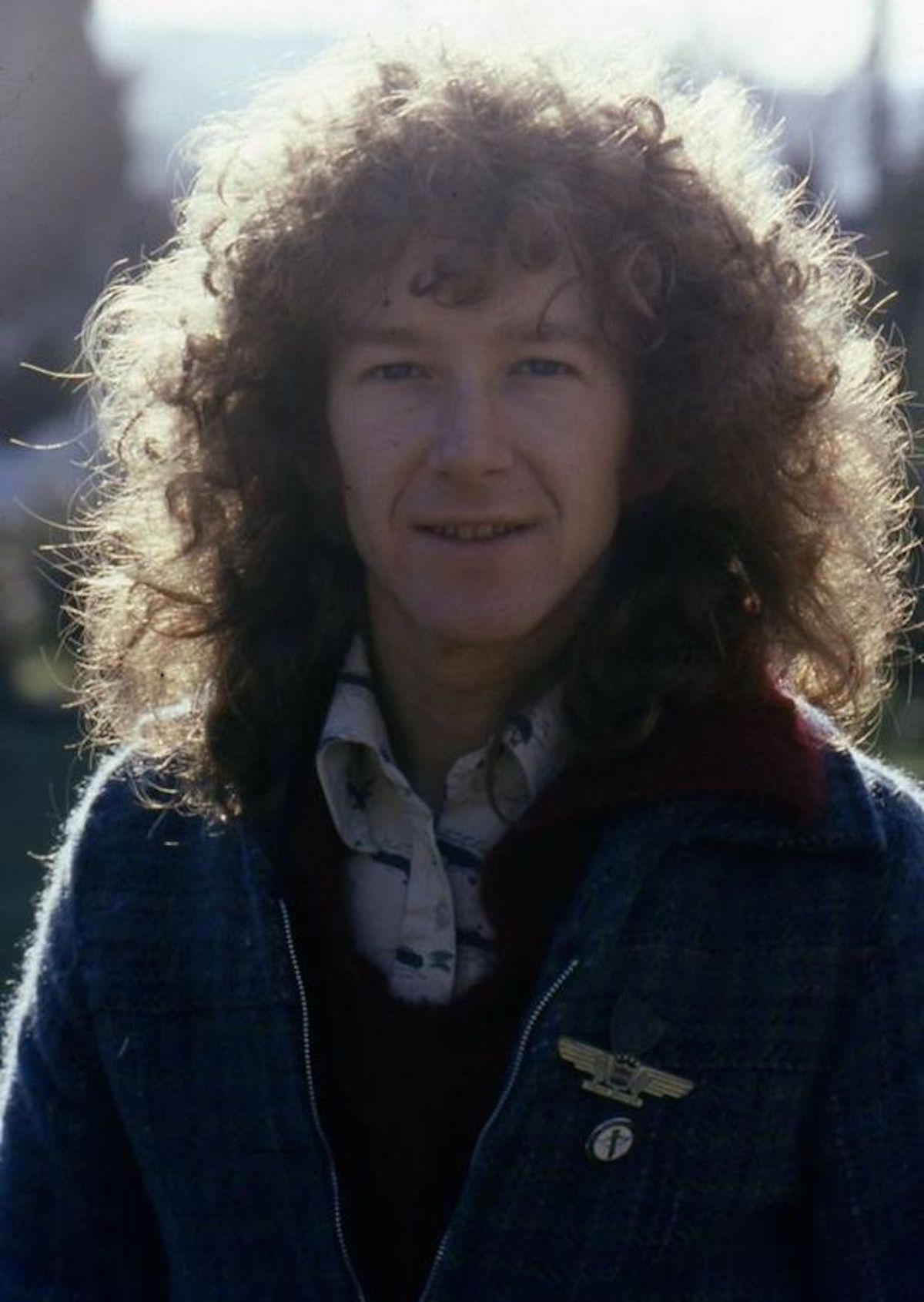
Page was productive at Sol with the slightly bluesy Death Wish score, conceiving and finishing it in just a few weeks. In addition to electric and acoustic guitar, Page also plays lots of guitar synthesizer, some Theremin and bass. He recruited vocalist Chris Farlowe for one track, as well as Pretty Things/Kinks keyboard player Gordon John Edwards and Fairport Convention drummer Dave Mattacks.
This is Page’s only album on the Swan Song Records label — one of the last released before it folded in 1983. It was followed by Plant’s Pictures At 11, Rough Diamonds by Bad Company and Zeppelin’s Coda. The last Swan Song album was the self-titled sophomore release by England’s Mick Ralphs-produced Wildlife.
Death Wish II opens with the “single” Who’s To Blame, which sounds like it could have been an In Through The Out Door reject. Gawd, I hate Farlowe’s vocals. So over the top and saggy. At times it seems like a pisstake, like satire. I have never heard anyone say they like his vocals, but Page must have — he brought him back for the Outrider album. But this is actually quite a cool song and has a great, great turnaround at the end of the chorus. I can’t help but imagine how great it could have been with Plant, or anyone else, singing. I actually hear Rod Stewart. It was 1981-’82… Billy Idol? Maybe a different Page crony, like Roy Harper or David Coverdale? Ah, well, most of the album is instrumental anyway.
Next up is the soundtrack’s longest song, The Chase. Frigging great score stuff. Dark, ’80s, sleazy, bluesy, cop-esque. It’s perfect. There’s even a very Candy Store Rock-like multi-track solo bit and a spot-on suspenseful string section part. This isn’t a song at all, it’s a score.
Not the case with the next one, though. City Sirens is a proper song — one Page’s band The Firm often performed live. There’s even a live version with Steve Winwood on vocals:
On this album, however, it’s sung by Gord Edwards. Most recently having performed with The Kinks in ’78 and ’79, Edwards supplies the piano on the song Low Budget. Tragically, he took his own life in 2003 and is buried in an unmarked grave. Edwards does every bit as good a job as Winwood, in my opinion.
After this is Jam Sandwich, a typical Page groover. You can just picture him, with pursed lips, jutting his neck out and back in time with the riff. There’s a big laundry basket of late-’70s Pagey licks in this. It’s basically The Firm, I suppose. Carole’s Theme is next, a gentle, string-laden “lady theme.” This is one to skip, from a listening-but-not-watching perspective. Even with the acoustic guitar flourishes at the end. Side 1 ends with the guitar-riff instrumental The Release where we see Page make an entire song out of what would have been a bridge a few years earlier. It’s short, at least.
Flip it over and we get real dark — Hotel Rats and Photostats. These next few tracks are perhaps the most score-like on the soundtrack. One of a handful which don’t sound anything like Page. It’s dark, atmospheric, and suspenseful. You can creep to it. A Shadow In The City is next, and is much the same.
Jill’s Theme is much more menacing than Carole’s Theme. Jill is either in danger or is a baddie. Then we have Prelude, which is credited to Page even though clearly Frederic Chopin wrote it. Or, at least, wrote the music it’s based upon. Still, it’s probably Page’s best and most representative guitar soloing on the album. Big Band, Sax, and Violence has a silly intro and then turns into another bluesy Page swagger-riff song. I’d like this if it wasn’t for the saxes. It’s basically just Jam Sandwich (Reprise).
Before we go we’re treated to a final vocal number, again featuring the late Edwards. Hypnotizing Ways (Oh Mamma) is a forgettable throwaway and probably the kind of song which kept Plant away. The guitar solo sounds like Page was just jamming. Still, it’s fun to hear him doing his thing even if it’s nowhere near the standard we’d come to expect and would never see again.
This album does appear to have awakened Page, though. Through his various guest appearances, The Firm, The Honeydrippers, Outrider and Live Aid, he was pretty busy throughout the ’80s as he transitioned to his current elder statesman role. Death Wish II is nowhere near as good as Herbie Hancock’s soundtrack for the original 1974 film, but it’s still essential listening for any romantic Zep fan.
3/5
• • •
Area Resident is an Ottawa-based journalist, recording artist, music collector and re-seller. Hear (and buy) his music on Bandcamp, email him HERE, follow him on Instagram and check him out on Discogs.


